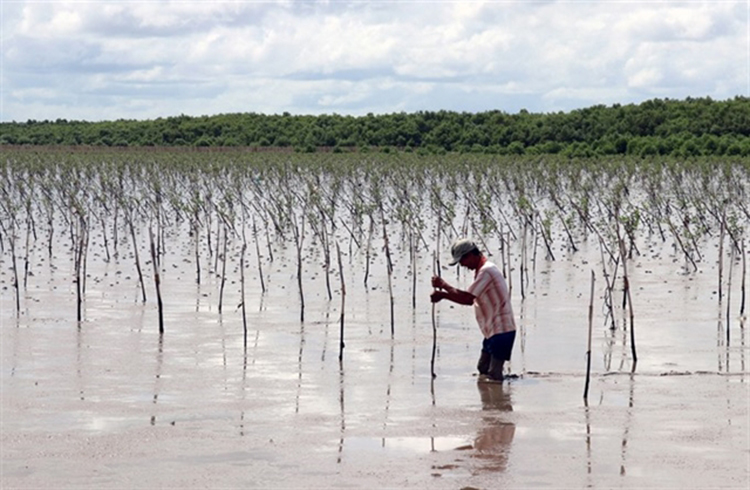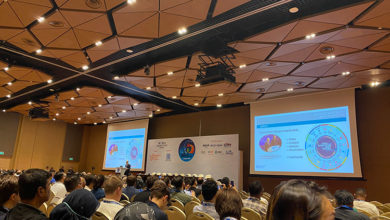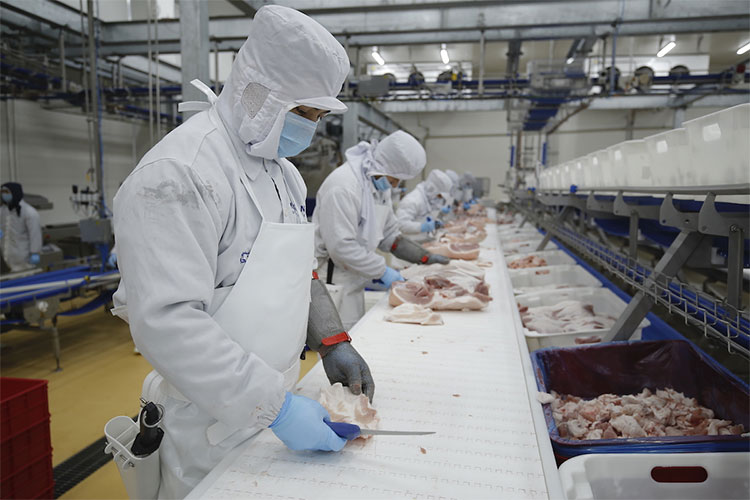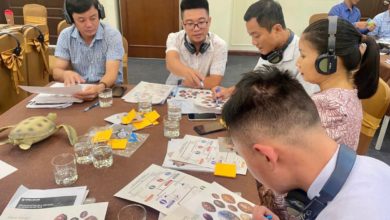Integrated plan a good start to tackle Mekong Delta woes
An integrated master plan for the Cửu Long (Mekong) Delta region, the nation’s agriculture and aquaculture hub, is a good step towards tackling several major challenges facing it, especially climate change.
Speaking at the Việt Nam – Netherlands Business Forum 2022 last week in Cần Thơ, Netherlands ambassador Elsbeth Akkerman said the economical, ecological and societal importance of the Mekong Delta for Việt Nam was undisputed.
“With its 18 million people depending on the low-lying river Delta’s economy, we cannot afford to lose this natural treasure, so we have to act now.”
The region faces the grave threat of climate change as well as intensive and unsustainable practices.
“We share a common goal, that is to ensure the Delta region is future proof, economically and ecologically resilient,” she added. “Doing nothing is no longer an option!”

Mangroves are planted in the Mekong Delta province of Kiên Giang to mitigate erosion and salt intrusion impacts. VNA/VNS Photo Lê Huy Hải
The recently approved Mekong Delta Integrated Regional Master Plan, the first of its kind, aiming to manage the challenges facing the region, is a good start and requires commitment from all stakeholders, according to Akkerman.
It is vital to promote sustainable and high value agricultural production by developing agro-business hubs for processing and adding value as also improving transport and logistics including inland waterways in the region.
“If done in the right way, it will allow us to unlock the full potential of the Delta for Việt Nam and the rest of the world,” she said.
“Along with this economic development we need to protect the environment and assure good water management, protecting fresh and coastal waters and improving the water quality,” she added.
“In other words, we need to work with nature instead of fighting against it.”
‘Long-term partner’
“The Netherlands is a long-term partner with Việt Nam and the Mekong Delta in water resources and climate change management for achieving sustainable agriculture and food security thanks to opportunities created by the EU-Vietnam Free Trade Agreement,” the ambassador said.
“The country has invested up to US$50 million in pipeline from public and private funds to projects and initiatives in the Mekong Delta, and there is room for many more.”
In Vĩnh Long Province, it provided $19.5 million in non-refundable aid for a project totalling $202.2 million, which aims to support the province’s climate change adaptation, she noted.
Kelvin Vương Hưng, representative of Climate Fund Managers, said the climate crisis was one of the massive hurdles being encountered as it affected people and nature across the globe with the Mekong Delta among the most impacted.
Major issues facing the region include pollution, saltwater intrusion and subsidence, he said.
Through ongoing projects in Mekong Delta provinces, Dutch experts and scientists have devised measures to support local people in climate change adaptation, sustainable agricultural development and water management, among others.
Other participants said it was paramount to build resilience and apply innovative and climate-resilient tools and practices to support poor farmers in adapting to increasingly severe droughts exacerbated by climate change.
Around 18 million Delta inhabitants are some of the world’s most vulnerable to global warming, so it’s important to assist them in being resilient to climate change, according to the participants.
Farmers should be trained in managing climate risks by applying resilient soil, crop planning and adopting management practices to reinforce investment in water security.
Delta residents should also be provided with financial assistance to implement climate-smart agriculture practices to improve production and increase yields, other participants noted.
The private sector played a leading role as the driver of change, Akkerman said.
“The private sector must move faster, be more active, and pioneer sustainable development in the Mekong Delta.”
One of the world’s most agriculturally productive regions, the Mekong Delta is of global importance, given its exports of rice, shrimp and fruit.
The region has been identified as one of the five deltas most vulnerable to climate change on the planet.
The current sea-level rise is 4mm per year while the region is sinking one to three centimetres per year due to groundwater extraction and soil compaction, making the need for urgent actions even more obvious.
In the worst-case scenario, one-third of the region will be below mean sea level in 2050 and more than 90 per cent in 2100, experts have warned.
With an area of 3.96 million hectares, the Delta contributes 50 per cent of Việt Nam’s total food output. It provides 90 per cent of the country’s export rice, 70 per cent of fruit and 65 per cent of aquatic products.
The event was organised by the Dutch diplomatic mission in Việt Nam, in collaboration with the Việt Nam Chamber of Commerce and Industry and the Dutch Business Association Việt Nam.
Source: Viet Nam News






